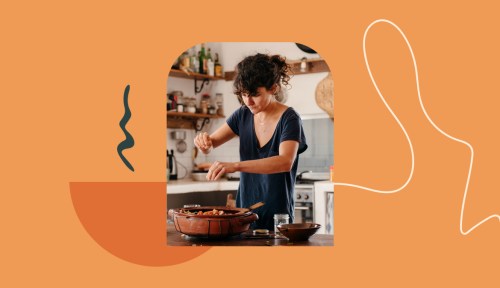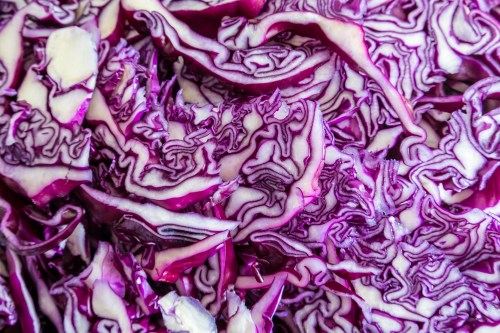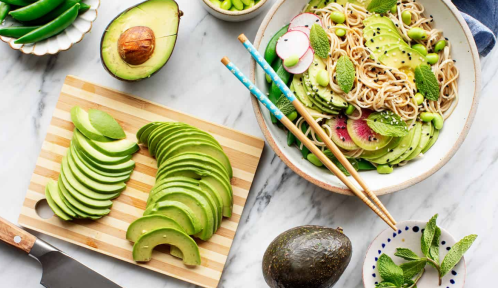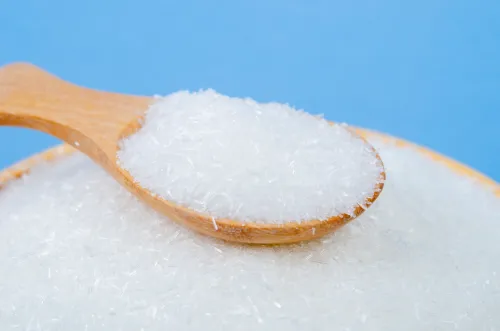Our editors independently select these products. Making a purchase through our links may earn Well+Good a commission
Recently, I flipped the last page of Crying in H Mart by Michelle Zauner. For those of you who haven’t read it, the memoir is about Zauner growing up Korean in the United States, navigating life without her mother—who passed away after battling an aggressive form of pancreatic cancer—and rediscovering her identity. Down to its core, it’s a touching and fill-your-heart-up story about how cooking and food can help us heal after losing people we love (and warning: reading the book will make you sob).
Experts in This Article
Whether you cook or not, grief experts confirm that preparing dishes that loved ones used to make for us can play a crucial role in processing grief. To better understand the science, we spoke with a few professionals to learn how cooking can help us heal from loss. And in this week’s episode of the Well+Good Podcast, we had a conversation with Frankie Gaw, author of the new cookbook First Generation: Recipes from My Taiwanese-American Home and Susan Krauss Whitbourne, PhD, psychology professor Emerita at University of Massachusetts, Amherst to talk about the profound healing power of food and cooking.
Listen to the full episode:
Taste, memory, and keeping loved ones alive through our meals
Cooking is a sensory experience, involving touch, taste, sight, smell, and hearing. Of all the senses, though, “the sense most strongly tied with memory is olfactory,” aka our sense of smell, says Peggy Loo, PhD, a licensed psychologist and director of Manhattan Therapy Collective based in New York. When we cook, we activate the hippocampus and amygdala, which are parts of the brain involved in memory and emotional processing.
Research shows that human olfaction can cue emotional aspects of our memory, most of which comes from the first decade of our life. “This is why certain smells can elicit visceral reactions and evoke memories from long ago,” says Shavaun McGinty, MA, LPC, CT, a licensed professional counselor and certified grief counselor at the Peacemaker Center in Dowingtown, Pennsylvania. This process is what some experts refer to as the “Proust phenomenon”—at the beginning of Proust’s novel, Swann’s Way, he details a scenario in which the taste and smell of a madeleine cookie dipped in a cup of tea brings back a character’s long-forgotten memory in detail.
What’s more, cooking helps us grieve is by minimizing the fear of forgetting our loved ones, whether it’s “their voice, their laugh, or that one facial expression they had when they were about to sneeze,” says Dr. Loo. “Knowing that our sense of smell is powerfully tied to memories means that you can access them when cooking dishes we associated with our loved one.”
By following recipes that our loved ones used to make for us or recreating dishes we once shared with friends and family, we keep the memory of a loved one or passed experience alive. In a way, the aromas and scents of the meal help us travel back in time—whether that means apples and cinnamon from your mother’s apple pie or in my case, the steaming broth from hot pot. Cooking is what keeps us connected to loved ones after they’re gone.
When we lose that special someone in our life, it’s also not uncommon to feel like we lost a piece of ourselves, including our cultural identity. However, cooking can be a way to honor cultural ties, or the passing on of something you had with a loved one, explains Dr. Loo.
Like Zauner, I, too, grew up Asian in America and lost a loved one: my gong gong (grandfather in Cantonese), who immigrated to the United States in the mid-1950s to start a better life. When he passed away from a heart attack in 2002, not only did my family fall apart (he was the glue that held us together), I felt like I lost a large part of my Chinese identity.
A chef, my gong gong cooked for a living and for family, but his death meant that Cantonese dishes—stir-fried clams in black bean sauce, garlic-infused green beans, and steamed fish with ginger and scallions—were no longer served at the dinner table. Though his death occurred when I was just six years old, I’ve come to realize that I felt the gravity of it most in college, where I grappled with feeding myself and realizing that I couldn’t cook traditional Chinese food. I didn’t learn any of my gong gong’s recipes, and he was the only one in my family who knew them. I felt ashamed and disconnected to my identity. However, I found solace in the aisles of Asian grocery stores, picking and reminiscing foods and snacks he used to make for me, and learning recipes online. And in making a bold attempt to cook a version of my gong gong’s Cantonese food at home, I felt more connected to him and my culture.
Grief looks differently for everyone, but cooking is the glue that binds us closer together. “It can be helpful to plan intentional pockets of space for your grief—like the one you might have cooking a meal from beginning to end,” Dr. Loo says.
Whether you’ve lost a parent, sibling, grandparent, or friend, cooking is the driver that reconnects us, grounds us, and helps us heal.
To learn more about how food and cooking can help us heal from loss and process emotion, listen to the full podcast episode here.
Sign Up for Our Daily Newsletter
Get all the latest in wellness, trends, food, fitness, beauty, and more delivered right to your inbox.
Got it, you've been added to our email list.











